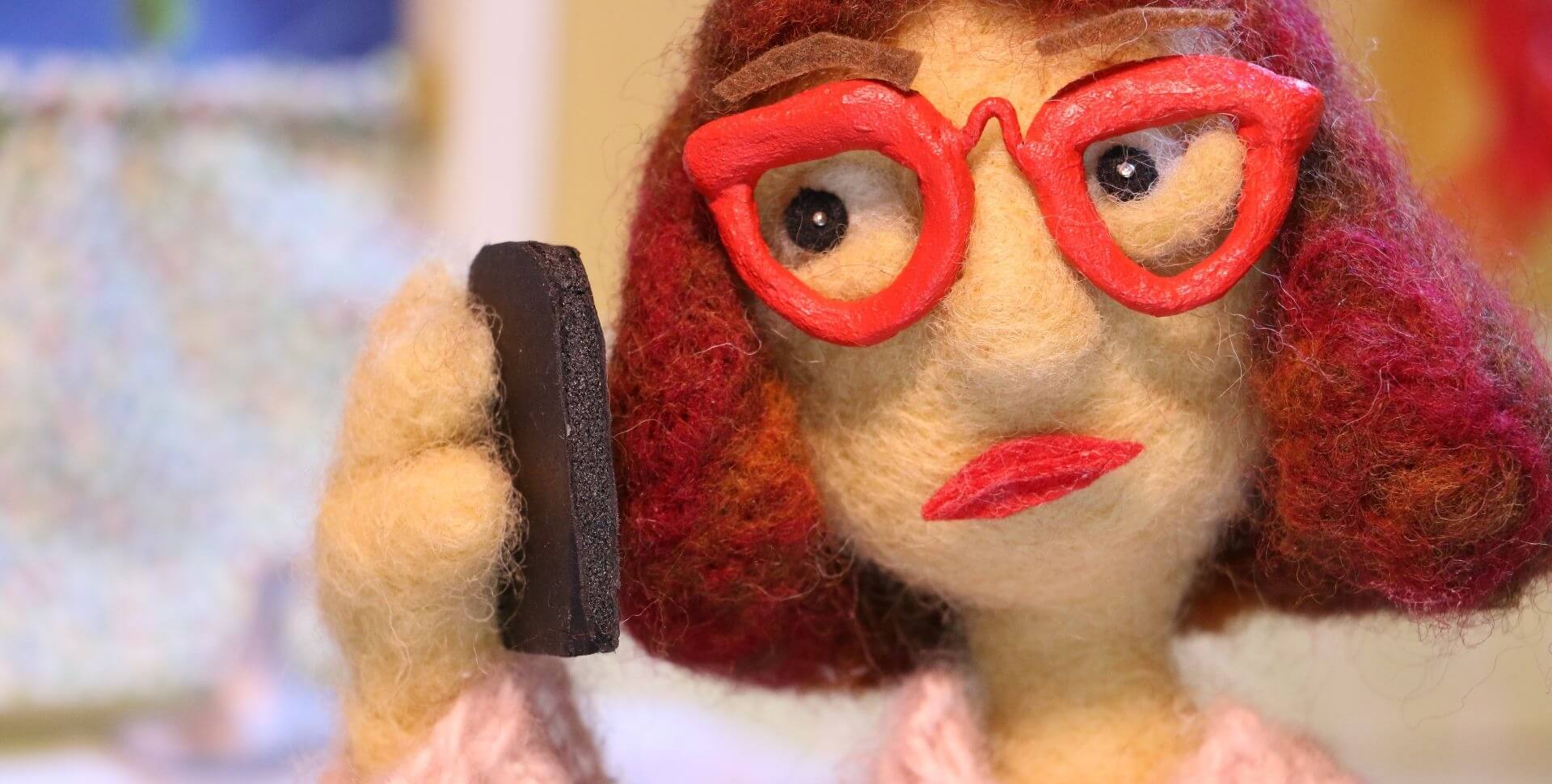Won Best Animated Short at the 2019 Palm Springs International ShortFest.
The short film, Dani, focuses on a woman who gives her mother a call to tell her about her breast cancer prognosis. This film was included in the Through Thick and Thin and Closing Night film programs at this year’s Palm Springs International ShortFest, where it received a warm reception and won the award for Best Animated Short. Director Lizzy Hogenson discussed more about her film, Dani, for Borrowing Tape.
1. Why did you decide to animate the film instead of having it be live-action?
The phone call in "Dani" is real. I have an interest in taking moments that are either preserved through a recording or storytelling and then making them "live" again. As for animation, at the time I heard the recording of the call, I was taking some stop motion animation classes as electives, and really taking the medium and looking for projects. Danielle, the young woman on the call, was my roommate at the time she was diagnosed with breast cancer. I think the animation, particularly the tactile nature of stop motion, adds a necessary softness and warmth to a difficult subject. At screenings, I will often see the audience's faces light up when they see its stop motion, but then sort of slowly change as the serious subject matter is revealed. The animation helps the viewer digest a rather heavy subject.
2. What inspired the story of Dani?
As part of her therapeutic process to help cope with the diagnosis, Danielle was recording a podcast, "Well This Sucks", with her two best friends from college. Blogging and the podcast gave her an outlet to discuss her treatment and emotions on a wider level. So, it was both a form of therapy and a way to let people know how she's doing. It's difficult having those sort of conversations. I personally found the fall so moving, that I had to find a way to share it with more people. Animating the call gives it new life and was also therapeutic for me. When someone in your life that you care about is going through a difficult time, you sort of feel powerless. I think making this film was my equivalent of running a 5k for breast cancer.
3. What was the most difficult part of shooting the film?
With stop motion animation, every aspect is difficult. The biggest challenge would be that I wasn't working in a traditional studio. I filmed the entire movie in my bedroom. I took the doors off of my closet and turned it into a makeshift staging space. I also had some technical challenges around space constraints, in terms of how far away I could place the camera and the lights. Also, in stop motion animation, you actually hot glue your tripod down, to keep it from moving, but since my apartment has wall to wall carpeting, I don't think my landlord would appreciate that. I often had to restart shots or scrap them because the camera would get bumped.
4. What message do you hope audiences get from the film?
I really hope this film inspires people to reach out to loved ones going through a difficult time. A phone call, or even a simple text, can make a huge difference. Life is unpredictable and often chaotic and in the end, all we really have the connections with each other. The relationships that we have, they're what give life meaning.
5. What’s next for you?
I've been conducting preliminary interviews and making contacts from making a hybrid documentary-animation short on Alzheimer's. Or, more specifically, how a lot of memory conditions related to aging sort of get grouped under one umbrella. When I learned that my childhood ballet teacher was diagnosed with Alzheimer's, I started emailing with her, checking in on her progress and her efforts to slow the progression of the diseases. Almost a year after her initial diagnosis, after some additional screenings, she learned that she did not, in fact have Alzheimer's, but rather lead poisoning. I had been talking with caregivers and professionals working with the elderly with memory disorders and this got me interested in how we treat aging.
